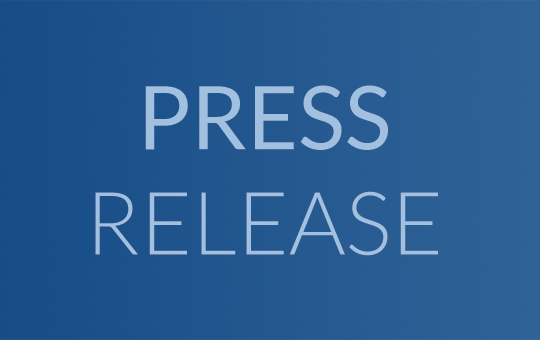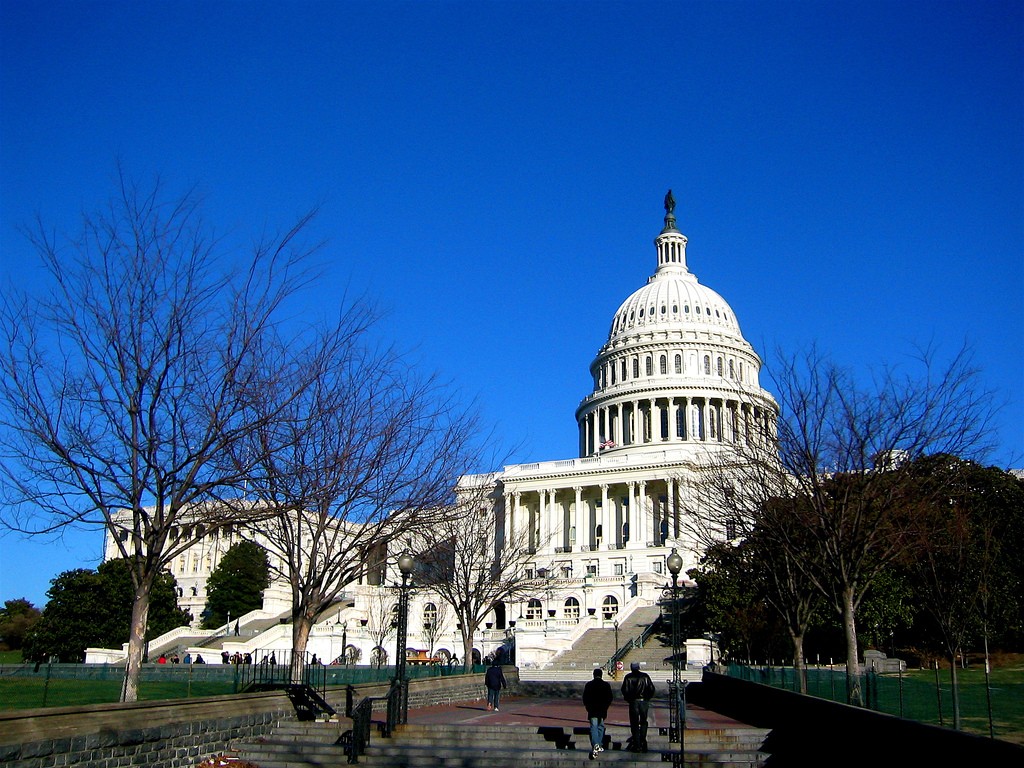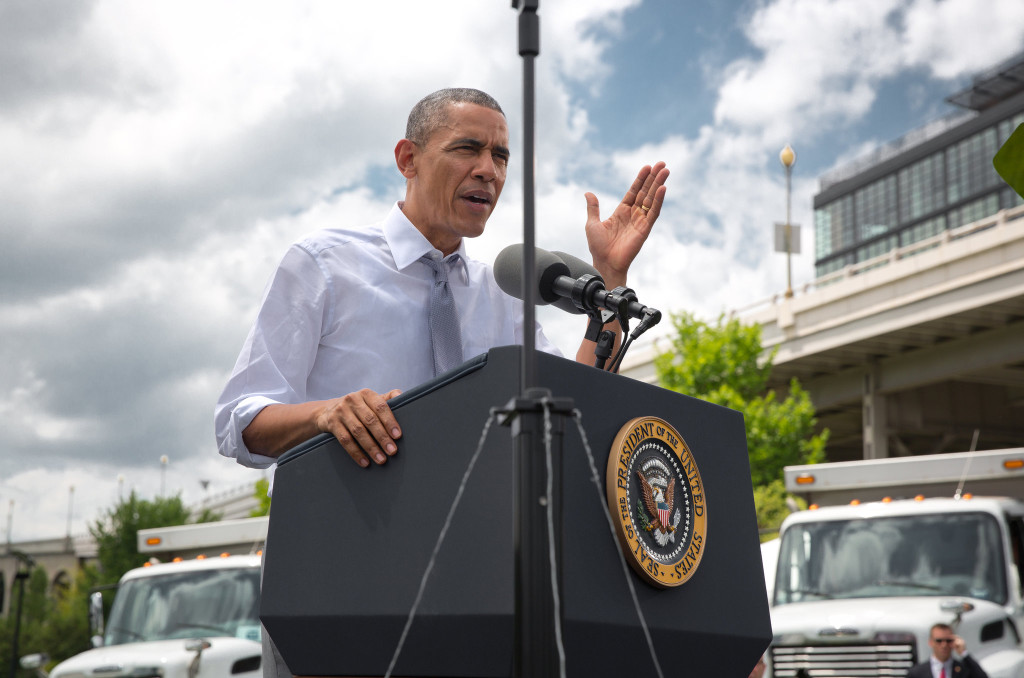As a valued member, Transportation for America is dedicated to providing you the latest information and developments around federal policy. This dedication includes in-depth summaries of what is going on in Congress and the U.S. Department of Transportation (U.S. DOT). Check out what you may have missed these past two weeks in Congress and at U.S. DOT.
President and Congressional Leaders Release Tax Reform Proposal
On September 27th, the Trump Administration, the House Committee on Ways and Means, and the Senate Committee on Finance released what they call the “Unified Framework for Fixing Our Broken Tax Code”. The full framework is available here, and a one-page overview is available here. The proposal would eliminate many tax benefits, including the commuter transit benefit. In 2016, federal law was changed to establish permanent parity between the transit benefit and parking benefit, raising the cap on transit and vanpool benefits to $255.
Tax reform efforts are focused on eliminating many provisions of the tax code, including transportation fringe benefits that cover parking, transit, and vanpools. T4America is concerned that, under the recently released framework, the commuter benefit is at risk of disappearing for good. Eliminating this benefit will end a critical incentive to take transit to and from work, taking money from transit systems already struggling to maintain a state of good repair. T4America will keep you updated as Congress moves forward with this process.
House and Senate Advance FY18 Budgets
The Process: The President submits the President’s Budget Request (PBR) to Congress in the spring. Soon thereafter, the House and Senate Budget Committee’s develop budgets that may or may not be informed by the PBR. Before Congress can consider the 12 appropriations bills that fund the entire federal government, it must first approve a budget. The Congressional budget sets the funding allocations for each of the 12 appropriations bills, allowing the appropriations committees to begin work on the bills. For FY18, the Congressional leadership has chosen to add “reconciliation instructions” to the budget. This is a special process, under which a bill can pass with without a filibuster, using only a majority vote in the Senate (as opposed to the traditional 60 votes). The FY18 budget will include instructions to approve comprehensive tax reform using this process. Passage of an FY18 budget allows Congress to complete its FY18 appropriations work.
The House: On October 5th, the House approved H. Con. Res. 71 — “Establishing the congressional budget for the United States Government for fiscal year 2018 and setting forth the appropriate budgetary levels for fiscal years 2019 through 2027” by a vote of 219-206. H.Con.Res.71 cuts transportation funding, including cuts to Amtrak’s long distance routes, transit, TIGER, New and Small Starts, bike and pedestrian funding, and many other priorities.
The Senate: On September 29th, Senate Budget Committee Chairman Enzi (R-WY) released his FY18 budget. The proposed budget reduces non-defense discretionary spending by $632 billion. This would have a significant negative impact on our transportation programs. The Committee marked up and approved the budget on October 4th and 5th. The full Senate will now consider the budget in the coming weeks.
T4America will provide additional analysis of the House and Senate budgets in the coming weeks.
Senate Environment and Public Works hearing on FHWA nominee
On October 5th, the Senate Environment and Public Works (EPW) Committee held a Hearing on the Nomination of Paul Trombino III to be Administrator of the Federal Highway Administration. Mr. Trombino is the President of McClure Engineering and the former Director of the Iowa Department of Transportation.
Mr. Trombino has a history of public comments suggesting an openness to new ways of thinking about our nation’s highway system. T4America submitted suggested questions to the Committee to help prepare for the hearing. Chairman Barasso (R-WY), Ranking Member Carper (D-DE), and Members of the Committee focused their questions on the proposed infrastructure bill, project review and approval process, resilience, and Public Private Partnerships. Mr. Trombino stated he is not aware of the status of the proposed infrastructure package but that he will become aware and brief Congress should he be confirmed. On other issues, Mr. Trombino pledged to work to address Senators concerns.
Absent any additional and disqualifying information, T4America expects the EPW Committee to favorably report Mr. Trombino’s nomination to the full Senate.
Senate Commerce Committee Approves Autonomous Vehicle Legislation
On Friday, September 8, the Senate Commerce, Science, and Transportation Committee approved held a markup to amend and vote on S. 1885, The American Vision for Safer Transportation through Advancement of Revolutionary Technologies (AV START) Act. The bill was approved by the Committee and will now be referred to the full Senate for further consideration. Despite some minor improvements, T4America remains concerned that this bill will preempt the ability of local governments to enforce their local traffic safety laws, potentially putting the public at risk. In addition, the bill does not provide the data-sharing framework necessary to ensure that local governments and law enforcement can adequately prepare for these vehicles.
Here’s the link to the statement T4America put out after the markup: https://t4america.org/2017/10/04/t4america-statement-senate-commerce-av-start-markup/.
What Happened at the Markup
There were 28 amendments offered during the Committee markup, a number of which were considered and approved en bloc, the result of an overnight deal. The full list of all approved amendments is available here: https://www.commerce.senate.gov/public/index.cfm/pressreleases?ID=BA5E2D29-2BF3-4FC7-A79D-58B9E186412C. T4America is analyzing the approved amendments and updated bill text and will continue to provide additional details.
For additional information, please see our previous policy update.
U.S. DOT Releases Proposal to Harmonize Environmental Reviews
At the end of September, US DOT released a supplemental notice of proposed rulemaking (SNPRM) that will harmonize to a much greater extent the National Environmental Policy Act (NEPA) review for projects that need review from multiple U.S. DOT agencies. If you would like to submit comments to U.S. DOT about this regulation, comments are due to U.S. DOT on or before November 28th.
Under this SNPRM, the Federal Railroad Administration (FRA) will be added to the Federal Highways Administration (FHWA) and the Federal Transit Administration (FTA) existing rules and regulations for NEPA reviews under part 771 and part 774 of title 23 of the Code of Federal regulations. The SNPRM proposes to make some changes to part 771 and 774 to account for some of the unique characteristics of rail projects.
This proposed change will ensure that a project undergoing NEPA review through multiple U.S. DOT agencies has one set of rules and regulations to follow. Currently, FRA’s NEPA review regulations are different than FHWA’s or FTA’s. Additionally, the proposed rule change ensures that a record of decision related to NEPA from one U.S. DOT agency is accepted by another U.S. DOT agency. Finally, U.S. DOT is proposing to require that the lead U.S. DOT agency designated to conduct the NEPA review must explicitly include in their NEPA coordination plan “participating agencies that are responsible for providing input within their agency’s special expertise or jurisdiction” and reach an agreement between the two agencies on the timeline for that secondary agency to provide their input. This requirement will ensure that necessary agencies have a chance to give their input with respect to the NEPA review but that there is a concrete timeline for that review to take place.
The practical effect is that as a result of this rulemaking, there should be a “single NEPA document that can be used for all Federal permits and reviews for a project to the maximum extent practicable and consistent with Federal law.” That should speed up environmental reviews without harming the intent of NEPA, leading to faster timelines for the construction infrastructure projects without causing environmental harm.







